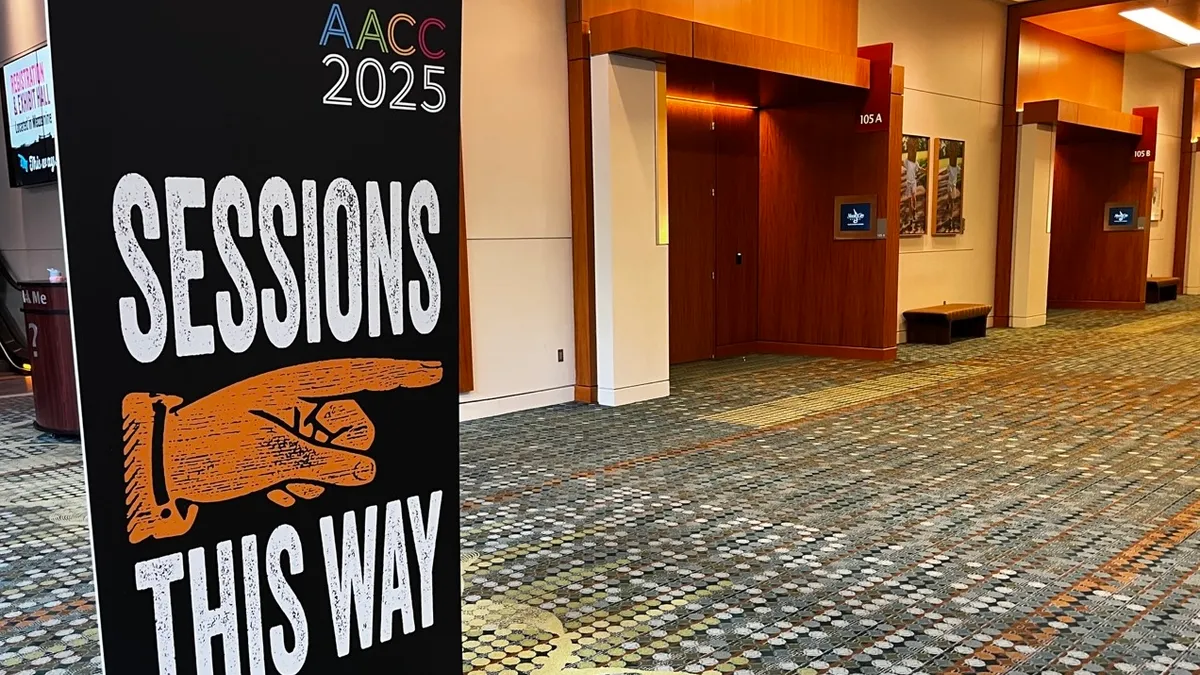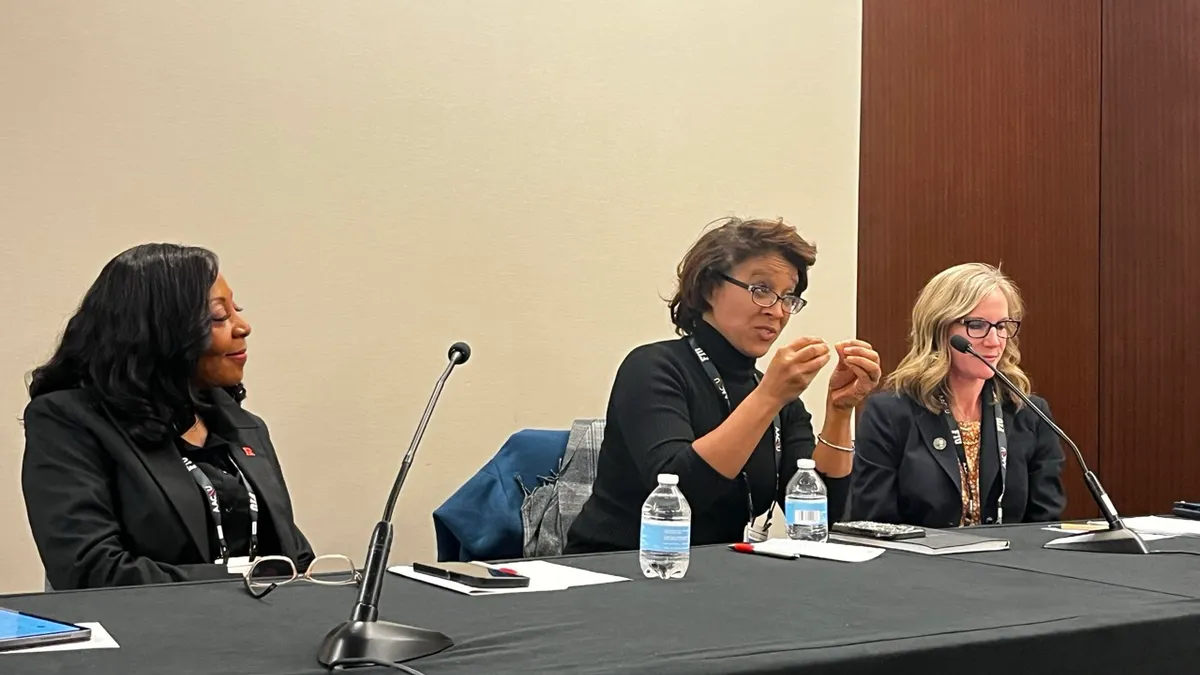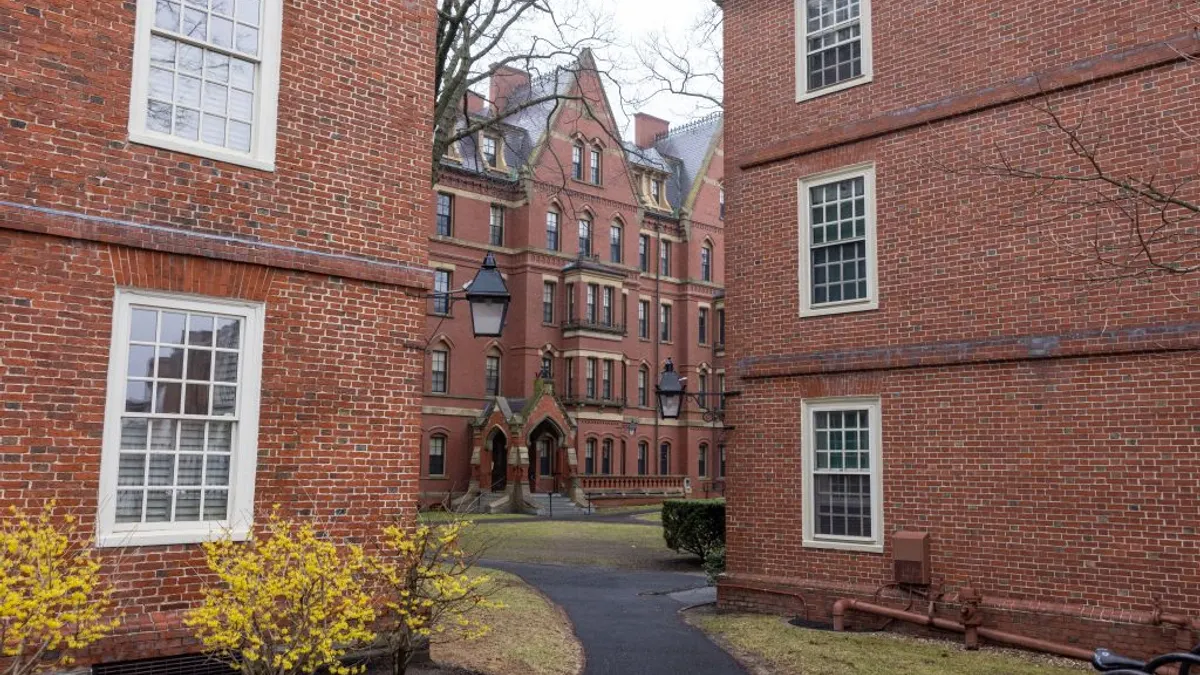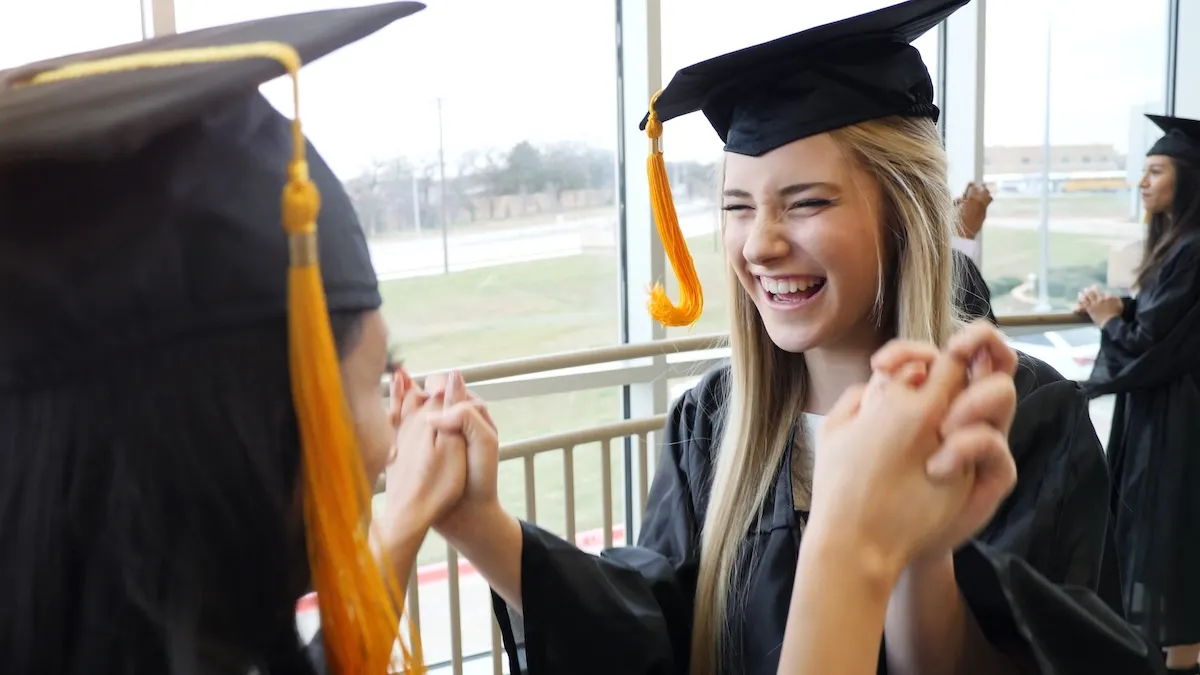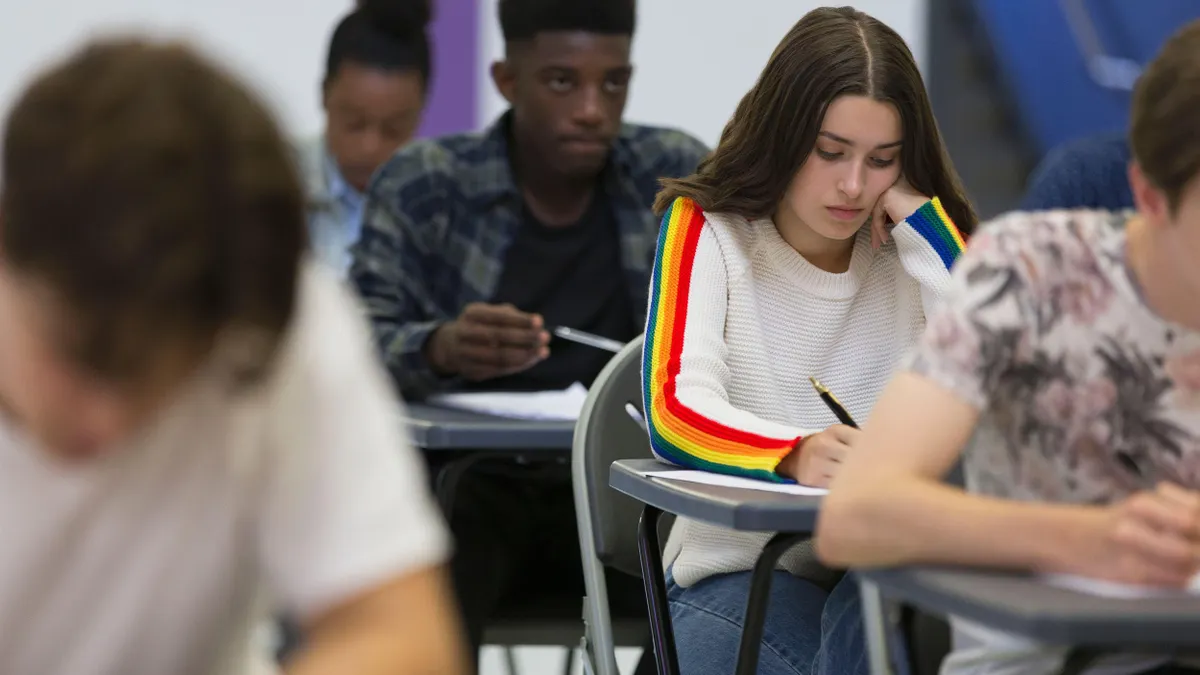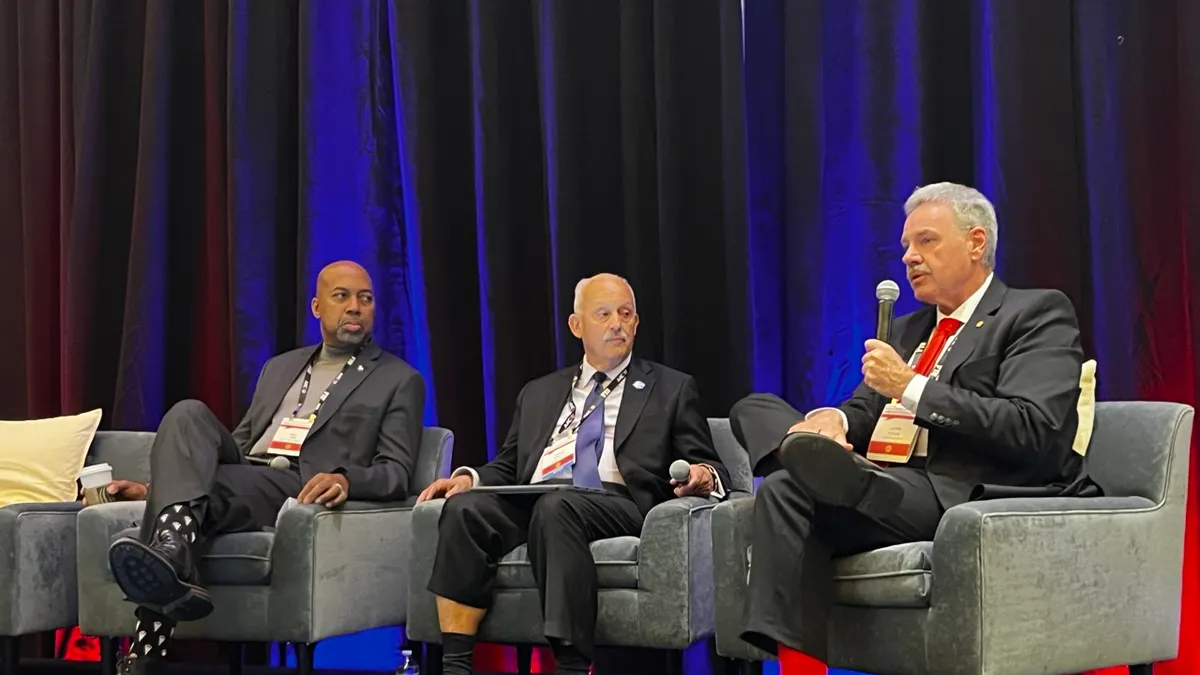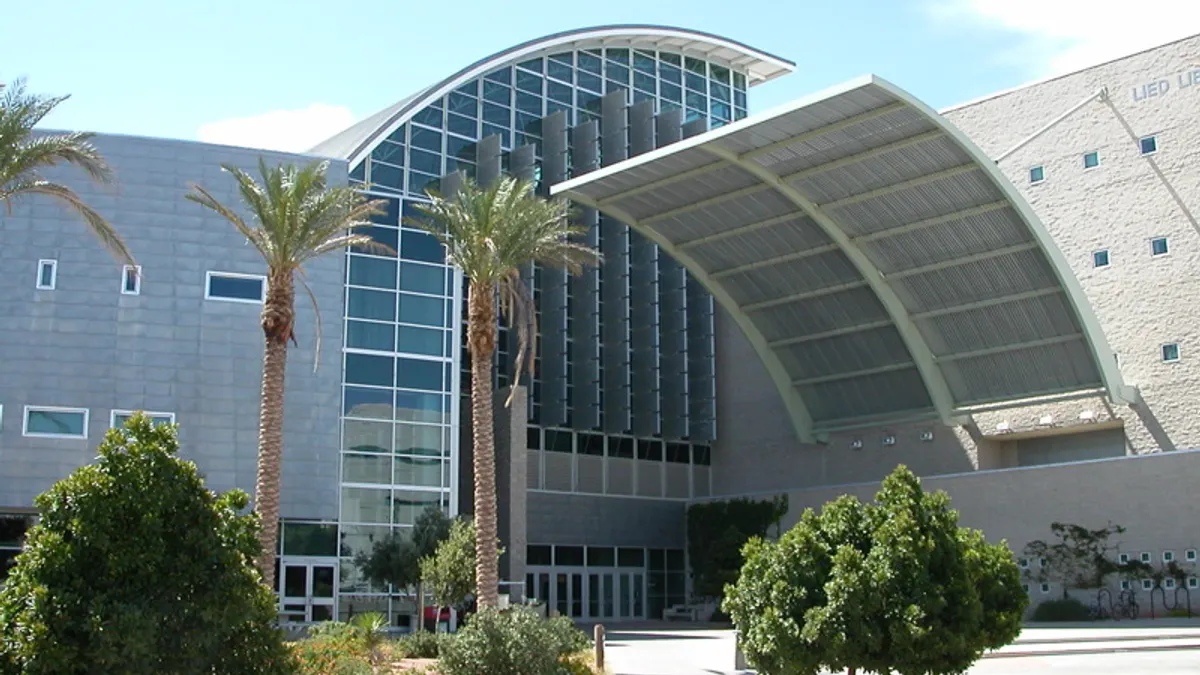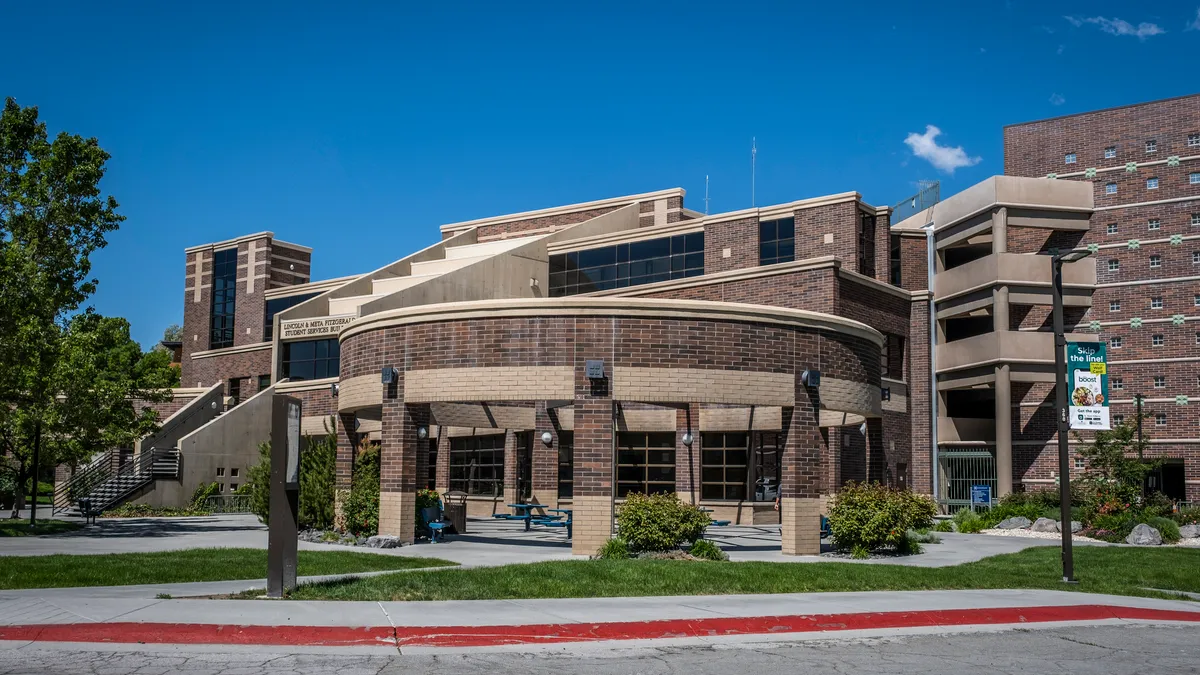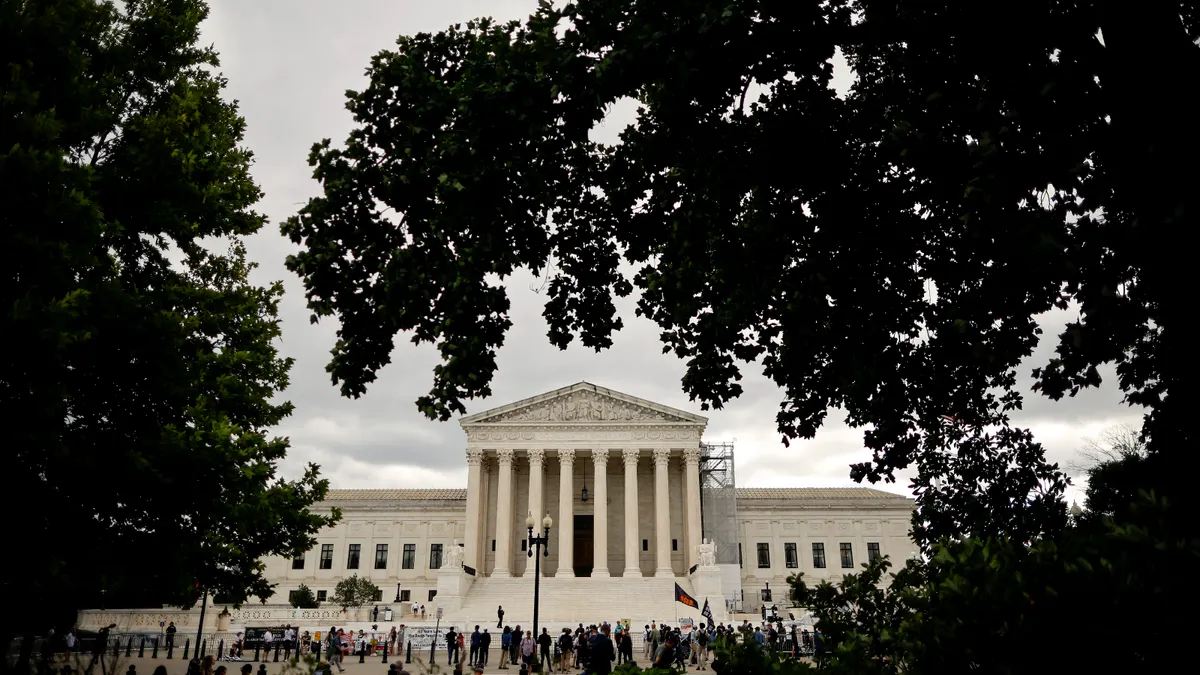NASHVILLE – Entering college with prior learning credits can be a huge boon to students, cutting down on the time and money required to complete their degrees. But the pathways to earning these credits may favor traditional college students from well-resourced high schools.
Since 2020, leaders from Salt Lake Community College have worked to improve prior learning credit options for prospective and current students, they told attendees Monday at the American Association of Community Colleges' annual conference in Nashville. The college put a special emphasis on pathways for adult learners — those aged 25 and older — as the average student on its eight campuses is 25 years old.
Over the past five years, the resulting cross-campus collaboration has yielded Salt Lake Community College some promising results, including more students receiving credit for their work experience and lowered financial barriers for prior learning assessment exams.
Then
In 2019, the Utah Legislature passed a law requiring the state's higher ed board to create a plan aimed at boosting public colleges' issuance of credit for prior learning, work-based skills and competency-based assessments.
Salt Lake Community College — which enrolls just under 37,000 credit-bearing students across eight campuses — began an evaluation of its process for awarding prior learning credits the following year.
Rachel Lewis, Salt Lake Community College’s associate provost of academic systems, said the existing process turned out to be hardly a process at all.
"It used to be, if you knew the one advisor who knew the process and could talk to this person in the registrar's office, we could get your prior learning," she said. "Good for the students who found it — not good for all the others."
The college's leaders also uncovered a gap in what kind of credits were awarded.
In 2019-20, about 80% of the prior learning credits that Salt Lake Community College awarded were through pathways typically used by high school students, said Andrea Tipton, the institution’s director of credit for prior learning.
For instance, 807 of the 1,291 students who received prior learning credits earned them through Advanced Placement tests offered by the College Board.
In comparison, only 13 students that year received credit for their professional certifications or licenses, and just one student earned credit for their previous work experience and portfolio.
Now
To address this disconnect, Salt Lake Community College standardized its prior learning credit process. That included a new hire.
"We made a crucial decision to create a position at the college dedicated to prior learning — one person at the college who could be the point of contact to serve in that role," Lewis said, nodding to Tipton, who was hired for the new role.
Salt Lake Community College now emphasizes credits for prior learning as an option through improved communications to students. The institution also works to inform students that it’s free to have their credits evaluated and added to their transcripts.
Once a prior learning credit is added to a student's transcript, it is transferable as if they earned it at Salt Lake Community College, according to college policy.
"When that student goes to the University of Utah, it's now considered transfer credit," Lewis said. "They don't reevaluate it. They don't look at it."
Roughly three-fourths of Salt Lake Community College graduates, 72%, go on to transfer to a four-year institution.
The college is also highlighting CLEP tests, an exam option offered by the College Board open to learners ages 13 and older.
The tests can provide a viable alternative to AP tests. But the registration fee — upwards of $95 in 2025 — proved to be a barrier for many students, Tipton said.
This year, Salt Lake Community College began directing students to the Modern States Education Alliance, a nonprofit that will cover test costs for students who complete its free prep courses.
First-year results are still pending, Tipton said. But the college is processing more CLEP exams than before, suggesting more students are taking advantage now that the financial barrier to testing has been addressed, she said.
In 2023-24, the college awarded 248 credits to 33 students for their professional licenses and certifications. This represented nearly triple the prior learning credits students earned this way only a few years before.
It granted another 100 credits to 18 students for their work portfolios and experience. The number is still low, but the jump from just one or two students a year is statistically significant, Tipton said. And it's a population the college wants to grow.
One prior learning pathway more commonly used by nontraditional students has seen a more complicated transformation — military credits.
Back in 2019-20, Salt Lake Community College appeared to do quite well in this regard, with 137 students receiving a whopping 2,184 prior learning credits for military experience that year.
"But it was a lot of electives," Tipton said. "It wasn't easily applicable to their degree or transferable in a meaningful way."
Since then, military prior learning credits have declined significantly, down to 34 students receiving 46 credits in 2023-24.
That drop resulted from the college shifting from "awarding just whatever the credit you can get" to prioritizing military credits that go toward a student's desired degree, Tipton said. She is now working with academic departments to continue establishing better course equivalencies for military experience.


